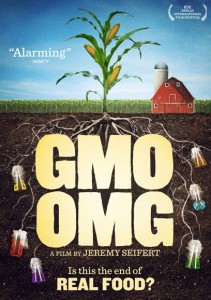
Shownotes
Professor. Consultant. Producer. Regenerative Agriculture Advocate.
Champion for Peace, Animals & the Environment
Board Policy Chair for the Rodale Institute
Elizabeth Kucinich shares her journey to the United States, her work for social justice, monetization reform and the NEED Act (National Emergency Employment Defense Act), her work as a film producer, animal rights, a nutritious Vegan diet, sustainable agriculture and using regenerative organic practices to help reverse climate change effects by sequestering carbon through photosynthesis and simple crop rotation practices. You won’t want to miss this one inspiration in every sentence!
Tell us a little about yourself.
I’m British, as you can tell from my strange accent, I came over 11 years ago to work on monetary policy reform, my key drive really, being a little bit lazy wanting to change the world as quickly as possible, I wanted to find out and think about what was the key driver that was actually causing the so much social and ecological destruction. Cause I didn’t believe that it is because we human beings are innately evil, but that there are systems set up that are quite flawed and maybe the previous designers hadn’t thought them thru in the way they should.
When I was 18, I started looking into monetary policy and understood it was our debt-based money system that was creating all of these pressures, that means we are borrowing money into existence! Not borrowing money once it’s in circulation but borrowing money to even get it to exist in the first place. So there is a debt for every dollar that we have circulating in our economy before we even borrow it for buying cars and houses and things like that. That is what is causing in trying to keep up with this exponential growth of debt and interest that is being charged on this circulating money that’s what’s driving us to have to turn more and more of nature’s resources into stuff and then junk every single year in what is called “Growth” in order to just to keep up with this!
I came over to the states to work on Monetary Reform and look at restructuring of the money supply. My first week in, after my first week I managed to meet with this gentleman named Dennis Kucinich! And the second time I met with him we got engaged and three months later we were married!
He happened to be a member of Congress who’d run for President!

Click here to link to Dennis on Bill Maher one of my all time favorite interviews!!! Especially from 2:25 min to 3:00 min!
And we then spent five years working with legislative council to get a landmark piece of legislation introduced called the NEED Act
National Emergency Employment Defense Act
Need Act
That was around the time of the banking crisis, that really looks at transforming our systems, the flaw that we have as human beings is to thinking about deficit rather then abundance and this really would be to change our thinking into abundance!
Something else I work on now and am very much focused on is agriculture policy and food policy because we are misunderstanding nature in a similar way! Yes, we live on a very finite planet and it is becoming more finite because we are abusing her but it has extraordinary potential!
For example ways that we can actually address climate change to bring abundance back to our communities. If you are interested I could go into that for a second.
I would love to hear that. Can I quickly tell listeners Dennis Kucinich is one of my favorite super heroes! Yes we would love to hear about climate change etc.
Yes he’s one of mine too!
I’m in Boulder Colorado at a conference on International Systems Theory
The theme of the conference is socioecological systems and regenerative approaches to not only can we have a sustainable world because sustaining destruction is not very sustainable but really how do we regenerate ?
How do we regenerate:
- our economy?
- our community?
- our environment?
It really takes just a slight shift in thinking, instead of looking at problems and how we solve our problems, we have to look at opportunities and also envision what we want to see.
So it’s true enough climate change is a disaster! A diabolical potential situation with effects that we’re feeling and seeing all around the world immediately right now! But let’s think, what we have in climate change, one of the key drivers is we’re really good at burning stuff and were really good at putting CO2 and other gases into our atmosphere but we’re not very good at bringing them back down again.
Photosynthesis
But we we can bring them down again and let me tell you we need to do that! Not only to resolve climate change but also, because what we have done with our food system, with the way we grow our food crops is that our soil has become depleted, our fields naturally were once were carbon sinks, they would pull down carbon out of the atmosphere because CO2 is absorbed by plants in this wonderful magical process called photosynthesis!
The easiest way that we can sequester carbon is through photosynthesis and nature does that very very well. But when were are farming the way we do, I’m not sure if people have fields around them, we probably see around now, that many of the foods have been harvested and the soil is exposed. So we have this wonderful sunshine where photosynthesis could occur if we had plants in the ground!
The plants
- take in that carbon
- turn it into themselves
- the carbon is the basis of life
- they make plant structure
- draw it down into their existence exude carbon in the form of carbohydrates out of their roots and they feed amazing micro-organisms!
There’s this symbiotic relationship between micro-organisms and plants they’re like an external digestive system, just like we know we have to eat lots of good probiotics in our food in order to have a healthy digestive gut! In the soil there’s all these amazing microorganisms that work with plants and help to break down all these different nutrients in the soil! So the plants have a way to uptake them! So the plants take down carbon, put it into the soil, and they feed microbes have an enormous body weight of carbon in their own structure. So we can sequester tons and tons and tons of carbon per year just through photosynthesis! And we need to do that because our system of agriculture has depleted the soil so much.
It’s carbon that:
- actually holds soil structure together
- helps to increase the availability of nutrients to our plants
- helps water to seep in
- helps prevent flooding
- helps to increase resilience when theirs drought
We have got this potential by having all this carbon in our atmosphere if we shift our agricultural production and methods, we would be able to draw that carbon down and
- increase resiliency in our food supply
- increase yields
- increase nutrient density
- and wonderful things
It takes a tiny little shift to take a problem and turn it into a tremendous opportunity!

So that sounds like a case for planting hemp that would sequester some carbon! So listeners may not know you’re an executive producer of GMO OMG which I talk about in Episode 91 and you’re working on your 3rd moving now called Organic Rising?
 Filmed for about 4 years, we have so many years of documentary footage, may turn into a tv show. I am working on a number of different creative projects that is certainly one of them.
Filmed for about 4 years, we have so many years of documentary footage, may turn into a tv show. I am working on a number of different creative projects that is certainly one of them.
I was the executive producer of GMO OMG and also an other very depressing documentary called Hot Water which is about radioactive ground water contamination because of uranium mining… nuclear bomb testing… and other horrible things we have done and continue to do in America, it’s very good, I do recommend people watch it, but you might have to prepared yourself because your gonna be very depressed before you’re finished.
So you sounded pretty optimistic what do you propose with this problem of the soil degregation do you want to see crops planted?
Absolutely! So we work with a number of farmers, lots of farmers the thing is the trick is, biological carbon sequestration!
Really using the power of photosynthesis to draw that carbon is brought back down into the soil and to make sure the way we grow our plants that we never exposing the soil to the air and maybe we’re not tilling as much as we did in the past.
Biological Carbon Sequestration
- never expose soil to air
- not tilling so much
There are amazing organic farmers are doing some tremendous things!
Regenerative Organic Agriculture
For example, I work with a 3000 acre, organic, regenerative organic we call this particular approach because some organic methods still rape and pillage the earth, they don’t use chemicals, still use extreme amounts of destructive methods, but regenerative organic is focusing primarily on soil health.
Cover Crops and Crop Rotations
You grow cover crops, say a clover, that draws down not only carbon, during the times when your not growing your food crop, so it also fixes nitrogen into the soil, so it’s a way that plants don’t only take nutrients out they actually put nutrients back in.
In organic agriculture there are things like crop rotations where you plant something that puts in a lot of nitrogen to start with and then your next crop maybe is something that needs an enormous amount, and next crop to balance different things
then through your rotations,
- reduce your pest pressures
one kind of insect is not just attracted every single year to the same crop and you
- disrupt weed growth with all the different crops have different maturation cycles so it means that the weeds they might flower at certain times but youd have a crop that stops that from happening so you don’t have seeds dispersing.
So...







